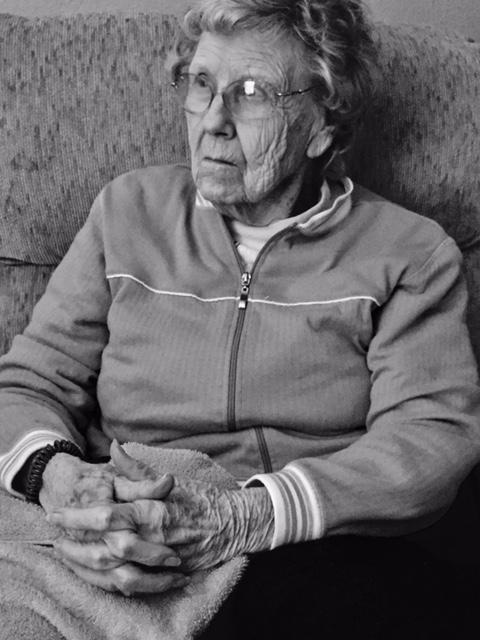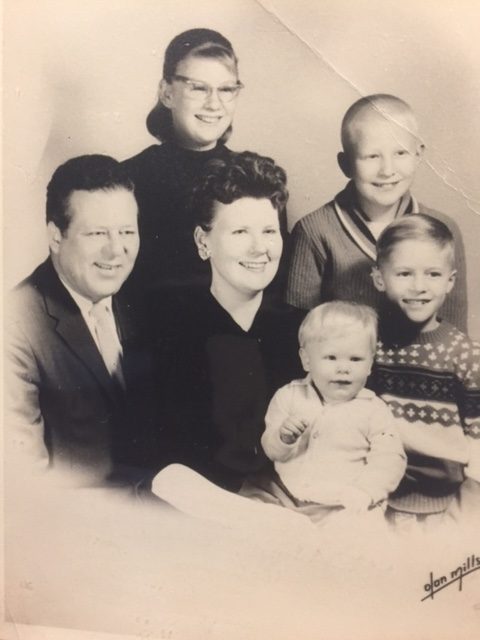
I’ve raised my voice to my mother a few times in my life.
Granted, it mostly happened when I was a teenager, but a few years ago, it was because she was in the middle of a full-blown conspiracy delusion about the doctor, my sister, and a truck load of crazy.
And I made her cry. It’s quite a gift to make a woman in her 80s cry—well done, self.
In my defense, I didn’t really understand dementia then, even though it’s a growing worldwide problem.
A new case of dementia occurs once every three seconds according to a report in May 2017 by the World Health Organization. So what is it, and what should we expect? They forget things, right? Umm…yes, but it’s much, much more. Facts are only the first to go, but then memories, logic, safety, taste and vision, and eventually mental health follow.
So what is left?
The first sign I noticed—after the frustration of her repeated stories (which we all do)—was 10 years ago, when my mother presented me with an amazing photo album she had created of my father’s life and the eight years of my childhood before he passed.
She handed it to me with great pride and affection. In the margin of one of the old black and white photos of my father was a handwritten message in my mother’s lovely cursive: “There’s a story behind this photo!” But, when I asked her about it, she had no idea. In fact she has never remembered why she wrote that note.
I will now never know this story. And neither will she. It is a loss to both of us. Losing these experiences is like burning a one-of-a-kind book—no, an entire library of one-of-a-kind books.
More importantly, dementia robs her and us of her context, and her ability to connect with the world and her loved ones. As an example, think of your favorite food. When was the first time you had it? Who made it for you? Where were you and who were you with? Do you have it on special occasions? Each time you take that bite and smell that aroma, you have the joy of all those previous memories flooding your senses and enhancing the moment of that taste. It’s not the same as just tasting something and liking it. It’s your favorite. My mother can’t remember those experiences. In fact, she has no idea what her favorite foods are anymore.
So, long term memory goes and saddens us. But the short term memory goes and maddens us.
How can she possibly not remember something that just happened? And more importantly, how does she interpret the world when her time machine keeps jumping forward and she doesn’t know it?
Look at it from her perspective: items go missing, while others magically appear. Her mind struggles to make sense of it: People are taking my things, or eating my food. What other explanation could it be?
I had once purchased trail mix for my mother and she presented the bag to me with a huff on my next visit. It was partially filled with only uneaten raisins. “Look at this!” she exclaimed. “The label clearly says candies, nuts, and raisins, and all they put in this bag is raisins!” I replied, “You don’t like raisins very much do you, Mom?” “No,” she retorted, “Which is why it’s so disappointing.”
So we laugh. And we roll our eyes. How could she come to that conclusion? So, then we also argue and try to reason with her. Logic does not work. She makes no sense, and what is clearly obvious to us, she cannot see.
To those afflicted with dementia, 1 + 2 = blue. Trust me, you have to see it to believe it!
Imagine visiting her, opening the refrigerator (when she still lived in her own home) and finding packets and packets of shredded cheese, some green with mold. You wonder what she’s thinking—is she expecting a looming great cheese shortage? It is truly maddening. And with frustration, many will raise their voice and yell. Just like I did. Sigh.
Get this: my mother gets upset when I give her a present.
She doesn’t remember me giving it to her, and even an hour later, is panicked because when she discovers the gift (again), in her mind, her worst fear has manifested: I came to see her, couldn’t find her, and just left the gift in anger. So, she sobs, thinking I will never visit her again. I console her. She calls back 10 minutes later having forgotten the conversation, and sobs once again, apologizing over and over for some imagined slight.
So now, she rarely leaves her room, fearing she might miss a call.
She cannot follow the plot line or differentiate characters on a TV show, let alone a movie. She cannot concentrate to read a book, and even when presented with a newspaper, she fumbles with it a few seconds, and tosses it away. At one time, she read three papers a day and did all the crossword puzzles before 9:00 a.m. She no longer has the skills to entertain herself. It is true solitary confinement.
When we do call, or visit, she can’t remember. It makes her feel good for a few minutes, but soon after, she will claim no one has visited her in months. So why even do it? I ask myself that every other Saturday. Why would I want to subject myself to four hours of the same conversations over and over again?
The collapsing sphere may ebb and flow with good and bad days, but piece by piece, a part of our mother is forever stripped away. Her world has slowly become so terribly small. So exactly what is left of our mother?
Love is the last to go, says our geriatric care manager, and it’s true.
She loves us. That is certain. Sometimes it’s a desperate phone call with imagined anxiety repeating over and over again like a mantra, “I love you, I love you.” Sometimes, it’s stroking our hands, or sometimes just the expression of relief and joy when we are at the door. For now at least, she knows who we are and mourns our absence even when we are present.
She loves her children. But, she has no memory of my childhood or my father’s name. She has no memory of her childhood for that matter either.
She sits in a room all day, sometimes not bothering to turn on a light. Waiting. Dementia is the cruelest disease I can imagine, and my sister and I mourn the loss of our mother every day, because we watch it happening every single day.

This woman we visit only resembles our mother. We visit and call because it brings her joy, even if only for a few minutes. And we do so because we honor our mother that we once knew. We do it because to not to, would be too terrible to live with. We do it because we fear the same will happen to us and we are banking on karma.
We do it because this stranger still loves us.
Yes, love is the last thing to go.
~
Author: Greg Simmons
Images: Author’s Own
Editor: Catherine Monkman
Copy Editor: Nicole Cameron
Social Editor: Waylon Lewis
 Share on bsky
Share on bsky





Read 65 comments and reply